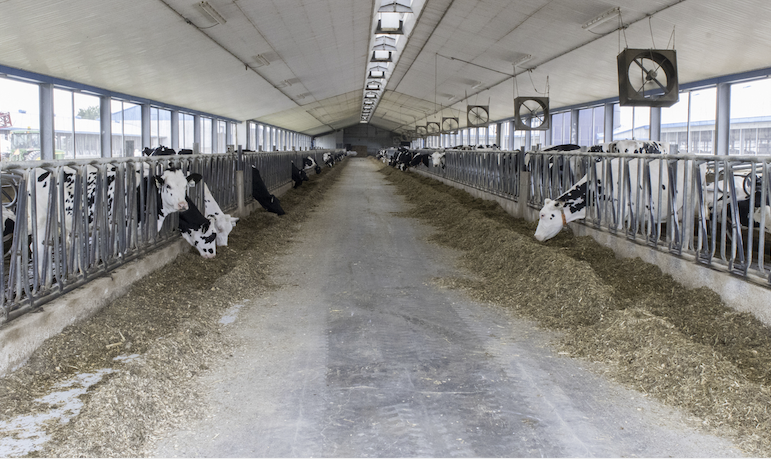It includes keeping work clean, safely storing material, and maintaining aisles and floors free of slip and trip hazards. It also includes removing waste such as cardboard, trash and other fire hazards from work areas.
Consider the hazards in your workplace and what can be done to change or maintain good housekeeping practices. If poor housekeeping practices such as debris, clutter and spills are accepted, then other more serious hazards may be present as well.
Slips, trips and falls
One of the most common type of hazards created by poor housekeeping are slip, trip and fall hazards. Injuries from slips, trips and falls equate to 18% of all time loss injuries in Canada every year. This includes objects and debris on the floor such as hoses, cords and tools. It also includes floors and stairs that are slippery, wet or damaged.
If spills or leaks occur, they must be contained and cleaned up right away. Water should be mopped up, and grease or oil must be contained using an absorbent material such as kitty litter or a chemical spill kit. The absorbent material also needs to be cleaned up right away, not left on the floor.
Tools and equipment
Ensure your work area is tidy and tools are cleaned up once you are done using them. Tools and other equipment should have designated storage areas and should be stored in the appropriate location when not in use. Do not leave tools on the ground or in an unsafe location. Do not allow cords to lay across someone’s path of travel or in an area where they can get damaged. Ensure things such as shovels and rakes are put away properly and never left on the ground.
Other housekeeping hazards to look for:
- Items stacked or leaning in corners or out-of-the-way places
- Aisleways, walkways and stairs that are blocked or cluttered
- Blocked or obstructed fire extinguishers or emergency exits
- Overflowing garbage containers and debris in other areas
- Compressed gas, chemicals or other hazardous material not stored properly
- Maintenance issues such as leaks, inadequate lighting and damaged components
- Biological substances or liquids on the floor or aisleways
Additional sanitary measures
Additional cleaning and housekeeping measures are needed at this time in order to support the goal of reducing the spread of germs in the workplace. The additional measures include providing additional cleaning material in the workplace and in vehicles. Always disinfect equipment and tools before and after use. Finally, frequently disinfect and sterilize public surfaces such as door handles, light switches, countertops, equipment, tools, vehicles, telephones, keyboards and other common surfaces.
Remember that housekeeping must be “maintained,” not “achieved.” Cleaning and organization must be done regularly, not just at the end of the shift. Build good housekeeping practices into your daily routine.
Ensure regular workplace inspections are completed on a regular basis. Correct or report all unsafe or hazardous conditions right away. ![]()
PHOTO: Photo by Mike Dixon.
Cheryl DeCooman, CHRL, can also be reached at (519) 532-2508 or on Twitter and Instagram.
References omitted but are available upon request. Click here to email an editor.

-
Cheryl DeCooman
- President
- People Management Group
- Email Cheryl DeCooman








